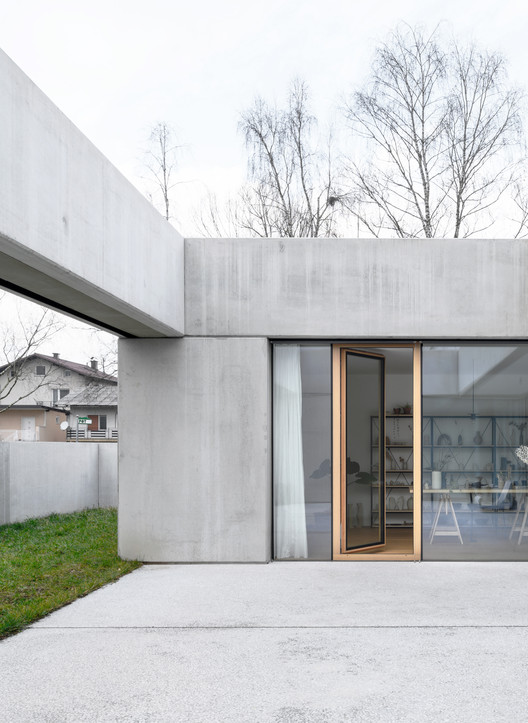
- Area: 200 m²
- Year: 2020
-
Manufacturers: AutoDesk, Swisspearl, Mizarstvo Kosak, New Objects, Sustinno

Text description provided by the architects. The atrium house was designed to unite the family’s living quarters with the working studio of its owner – a ceramic designer and artist - under one roof. Its aim was to be crafted in response to the growing trend of working at home. The 550 square meter plot is located in the suburbs of Ljubljana, Slovenia, in an area currently undergoing extensive gentrification. It is surrounded by dense and diverse construction of singlefamily houses. The client wanted to keep the house closed from its visually busy immediate surroundings, which will undergo unpredictable development in the future, while at the same time wished to acquire a welllit and fully connected living and working space.




























